Did you know over 40% of men do not talk about their mental health issues? In fact, according to men’s mental health statistics, most of them report seeking medical help only when struggling with thoughts of self-harm or suicide. Men’s mental health is an increasingly serious issue that we need to talk about openly without any judgment, criticism or shame.
In our complex and flawed society, men still lack a safe space to talk about their emotional and mental issues. No, we don’t talk about men’s mental health. We simply tell them to “man up” because “boys don’t cry”. But it’s time to change that as telling someone struggling with psychological struggles to man-up is not the answer.
Related reading: 10 Rules For Modern Masculinity
Men’s mental health awareness vs social stigma
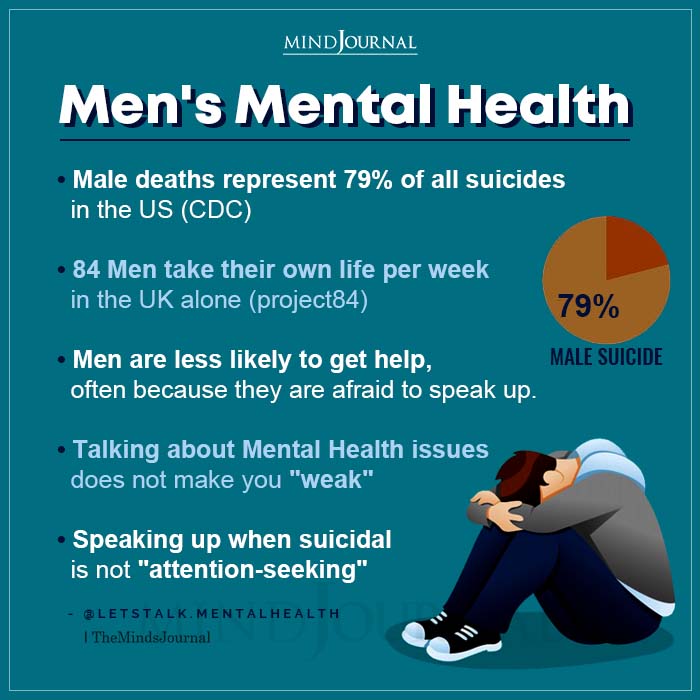
Mental health is a topic we need to take seriously regardless of someone’s gender. Yet, men are judged more than women when they struggle with devastating mental illnesses like anxiety, depression, schizophrenia or bipolar disorder. Why? Simply because men are supposed to be strong.
They are not supposed to show signs of weakness. And this makes it increasingly difficult for most men to admit that they are struggling, let alone ask for help.
This stands true even when studies have found that men are more vulnerable to commit suicide than women. “Suicide appears to be a male phenomenon, as death rates from suicide are four-to-five times higher for men than for women,” explain researchers.
Then how do we spread awareness about men’s mental health on this men’s mental health month, when we are stifled by stigma and suffocated by a highly distorted society?
By openly talking about it. By encouraging those who have found the courage to seek help and recover from their inner struggles. To share their stories. To encourage those men who are still hiding in the shadows desperately trying not to let anyone know about their mental issues.
We need such bold and brave men to lead our society into an era where seeking help is encouraged and applauded, not criticized and judged.
Related reading: What is Good Mental Health?
What men wish other men knew about mental health
Not everyone hides their pain. Some fight and inspire others to fight their inner demons and find the light which can brighten their life once again. Here are the things to know about men’s mental health from men dealing with mental illness the right way
1. Dean, 33: It’s okay to be emotional and express your feelings
Having emotions and sharing them is healthy and natural, believes Dean who has been coping with Generalized Anxiety Disorder (GAD), which causes constant feelings of fear, anxiety, self-doubt and insecurities.
He says his condition makes it difficult for him to communicate his feelings as he is riddled with self-doubt and social anxiety. He also experiences persistent panic attacks and has difficulty in relationships.
“But it’s okay to be emotional and express your feelings. Despite how my anxiety makes me feel, I take deliberate effort to connect with others and talk about my feelings with my loved ones,” says Dean.
A recent 2021 study has found that men tend to be as emotional as women. However, due to social programming and dysfunctional stereotypes, men refrain from sharing those emotions and grow up suppressing their feelings, which can lead to several mental and emotional health issues.
In fact, recent research has observed that “Some men maintained a desire to be independent, rejecting the need for social support,” while “others experienced difficulties in mobilizing support from existing connections.”
Related reading: 10 Ways Men Can Crack the Code of Their Feelings
If someone considers you weak for having feelings or struggling with men’s mental health problems, then you don’t need such toxic people in your life.
Regardless of what society might tell you about the unacceptability of men’s emotions, you don’t need to fall victim to cultural norms, says Dean.
“Don’t fall for such toxic gender stereotypes against men. Expressing your emotions is not a sign of weakness, rather it is a sign of strength as it takes courage to be vulnerable before someone else. Don’t let your fear of repercussions and anxiety dictate your life,” suggest Dean.
2. Nathan, 26: Never shy away from seeking help
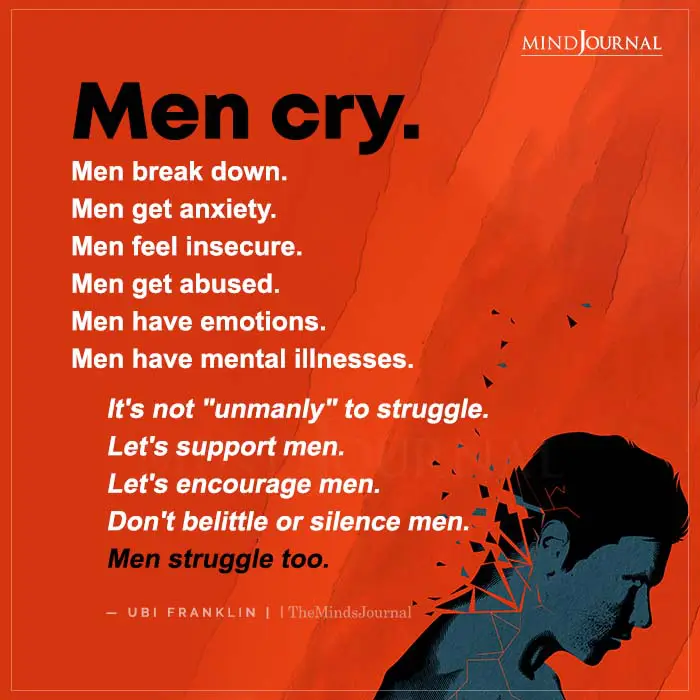
“Although being depressed may seem cool to many people, struggling with major depression can destroy your life. It can ruin your career, your relationships and make you falsely believe that suicide is the only escape you have. This is why it is very, very important that you always talk to a doctor and seek medical help,” says Nathan, who has been diagnosed with clinical depression.
According to one 2011 study, depression is typically considered “a woman’s disease,” but the lower incidence of depression among men is mainly a result of “men’s tendencies to deny illness, self-monitor and self-treat symptoms, and avoid professional health care providers and services as a means to enact and preserve their masculinity.”
Researchers from a 2018 study, have also found that “Men seek mental health treatment less often than women.” Mental health help-seeking in men is far less than in women which can strongly affect their personal life, relationships, physical & mental health, and financial state.
“Men are more likely than women to terminate therapy early and generally have negative attitudes toward help-seeking,” adds the study.
Related reading: Why We Need To Stop Romanticising Mental Health Problems
When you are a man, it is difficult to admit that you are facing men’s mental health issues and seek help. We are programmed from our childhood to believe that we should be strong and deal with all problems to earn the right to be called “a man”.
So when we feel down, chaotic, and unable to deal with inner issues, our first instinct is to hide it. Instead of addressing our mental health issues, we put excessive pressure on ourselves to be strong and to ‘man up’. So it makes sense that we are afraid of seeking help believing that society will see us as weak.
“But we need to actively change that,” says Nathan. He adds “You don’t need to be afraid to seek professional help despite how scary it may seem. No one will judge you. It will not make you any less of a man. In fact, you will inspire others to get the help they need. Only a real man knows how to ask for help.”
3. Tyrone, 45: You are not alone
Feeling isolated and lonely is one of the most common symptoms of mental illness. Being burdened by mental health issues like stress, anxiety, low self-esteem, or depression, can make you feel that you are all alone which can drastically affect the way you interact with yourself and others.
“But do not believe for one second that you are actually alone. It is a false narrative that your mind feeds you. Influenced by your distorted thoughts, you start believing that nobody cares about you and you increasingly withdraw yourself from social relationships,” says Tyrone, who has been diagnosed with bipolar disorder.
If you feel alone and down, that’s okay. But make some effort to reach out to people you love and trust. Studies have found that “having a higher frequency of contact with family, friends, and social online networks contributes to reducing loneliness for all individuals.”
In fact, one 2019 study has found that fulfilling and meaningful relationships can significantly help to improve men’s mental health and well-being.
Globally, numerous men suffer from a range of mental illnesses, but as men are conditioned not to talk about their mental health problems, it usually goes unreported or undiagnosed. According to men’s mental health statistics, around 18% of men worldwide suffer from some form of psychiatric or substance use disorders.
About one billion people around the world experienced some form of mental illness in 2017. So if you believe that you are the only one struggling with such issues, then you are definitely not the only one. “And this is why we need to come forward and talk about men’s mental health openly and honestly,” suggests Tyrone.
Related reading: Why Men Who Cry Are Not Weak, They Are Stronger Than The Rest
4. Armando, 29: Mental health is different for everyone
“My definition of good mental health does not necessarily have to match your definition of the same. Each one of us have different life experiences and perspectives. We have different personalities and sensitivities. What makes me feel anxious might not even matter to you. So never judge yourself or your health according to how others define it. Your health depends on how you feel. The focus here is on you,” explains Armando, who is currently under treatment for Post-Traumatic Stress Disorder (PTSD).
“Mental illness lies on a spectrum, from absent to present. Well-being also lies on a spectrum, from low to high,” states a 2010 study. Depression can lead to suicidal behaviors in some people, but simply because you don’t feel suicidal, it doesn’t mean you are not depressed or that you don’t require medical attention.
Men’s mental health problems can affect each one of us differently. While some may still be functional in their daily life, others may experience serious difficulty in their day-to-day living.
“I would suggest everyone struggling with mental health problems seek help and undergo medical treatment,” adds Armando.
Related reading: What Many Men Secretly Crave But Have A Hard Time Asking For
5. Darrell, 37: Always focus on yourself first
“As men, we barely have any time for self-care. The honest to God truth is men are often alien to the concept of ‘self-love’. Between our careers, paying bills, family responsibilities, and relationships, self-care for men often translates to cracking a cold one with the boys. But we need to focus on improving your mental health first and foremost,” says Darrell, who is coping with dysthymia, a chronic form of depression.
He believes that men are not taught how to care for themselves. They are not taught how to practice self-love, self-care, and self-compassion. As a result, men often indulge in substance and alcohol abuse as a means to deal with men’s mental health issues. But that needs to change now.
We need to normalize self-care for men. “Unless you learn to care for yourself, you will not be able to care for your family. Unless you know how to love yourself, you cannot love your partner and children,” adds Darrell.
Focusing on your needs, desires, wants and mental illness will make you more aware of your strengths and enable you to work on your weaknesses. It will help you build the life you want for yourself and your family.
Related reading: Alcoholism And Mental Health
Men and mental health
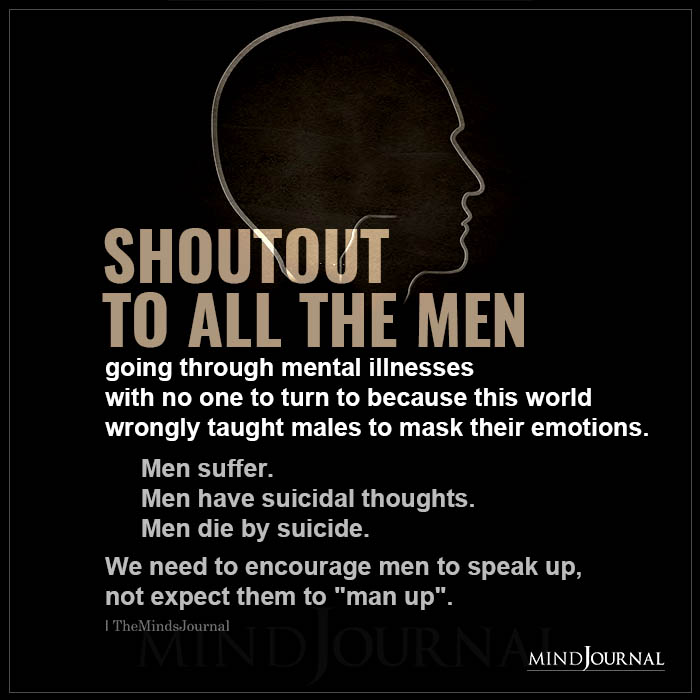
Men’s mental health problems are topics we need to talk about more frequently because unless we make seeking help normal for men, we will keep hiding our pain and problems.
We can have as many men’s mental health awareness campaigns as we want, but nothing will change in reality unless we shatter stereotypes and transform how we look at men as a society.
Mental illness is serious for everyone regardless of your gender or sex. So instead of suppressing your feelings and hiding your illness, talk to trusted loved ones and consult mental health professionals. Recovery is possible. All you need to do is take the most difficult step – reach out and ask for help.
A real man always looks after himself.
Related reading: 3 Most Common Mental Health Disorders In Men
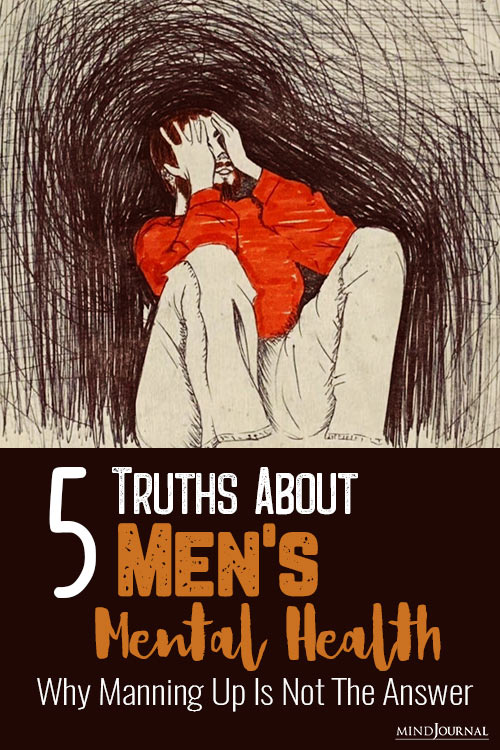
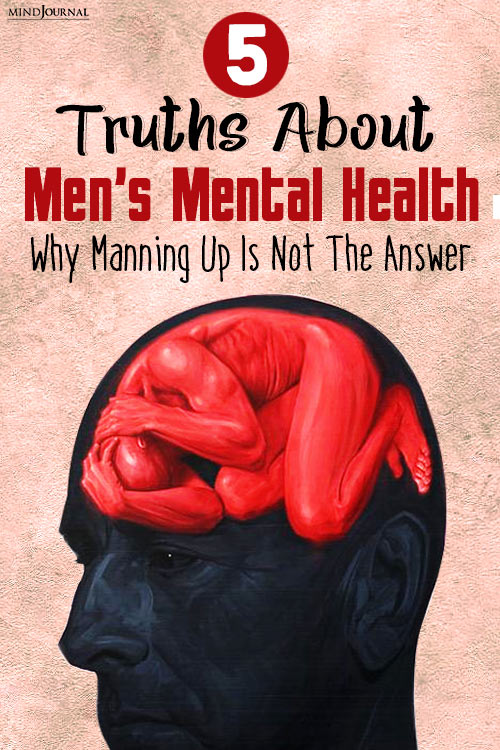
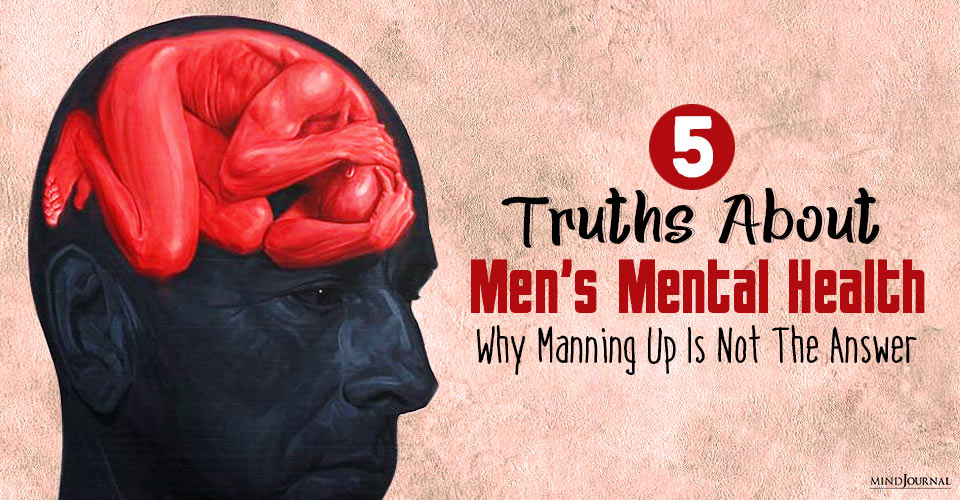


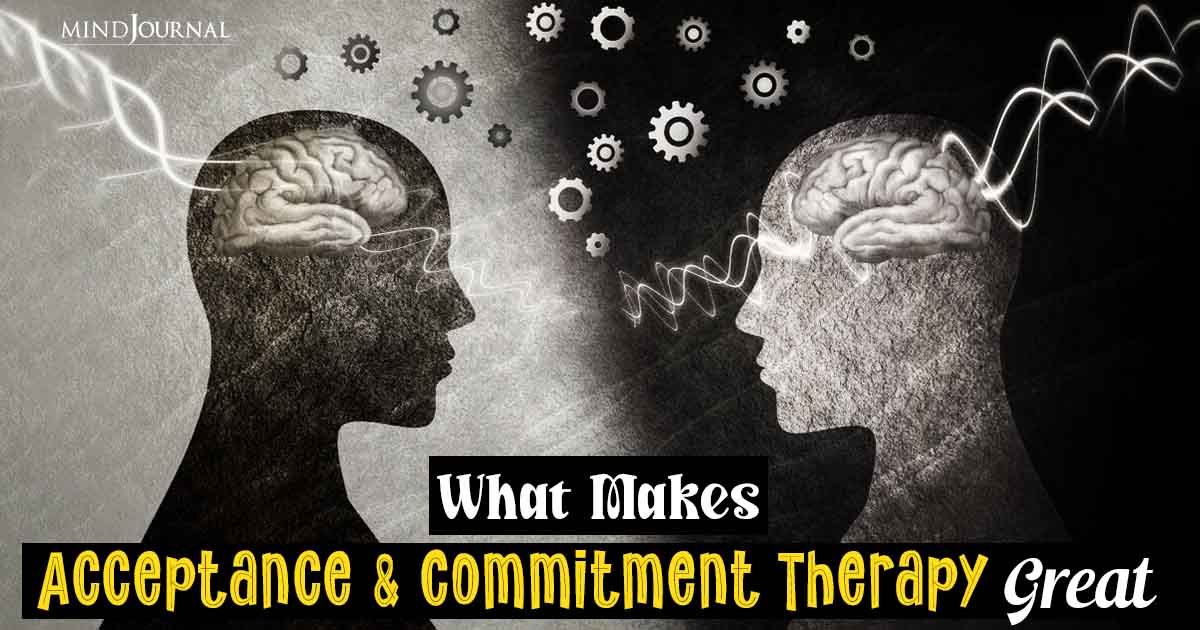




Leave a Reply
You must be logged in to post a comment.